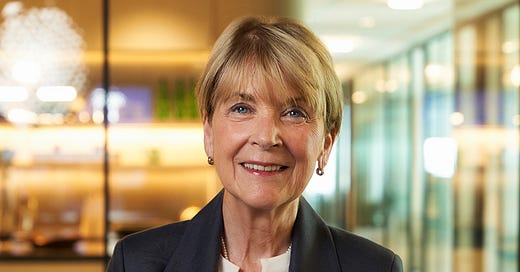Long wait ahead for stalled development projects | Local hospitals deluged with class action lawsuits thanks to 1960s state wiretapping law | Nation’s largest newspaper struggling under a avalanche of debt | Seeds of Steward disaster sown years ago | Quick hits |
News tips? Story ideas? Email us at sbvanvoorhis@hotmail.com
Toxic contributions? As the state’s top law enforcement officer, Martha Coakley pocketed tens of thousands in campaign cash from now the reeling for-profit hospital chain Steward
Hindsight can be an unsparing judge.
Turns out that Coakley’s actions as attorney general, when she gave a green light to Steward’s acquisition of a group of struggling local hospitals, hasn’t stood the test of time all that well.
In 2010 Coakley approved the then-fledgling for-profit chain’s acquisition of a group of struggling Catholic hospitals across Eastern Massachusetts, including the Carney in Dorchester and Holy Family in Methuen, that were then owned by Caritas Christi.
Coakley, who served as attorney general from 2007 to 2015, later also gave an ok to Steward’s 2014 closure of Quincy Hospital, which the chain had pledged to keep open for a decade after acquiring in 2011.
During Coakley’s 2010 Senate run - which she lost to Republican Scott Brown in humiliating fashion - and then in her unsuccessful 2013 bid for governor, her pals at Steward were there for her, big time.
Coakley, a Democratic Party stalwart, netted roughly $40,000 in contributions from the now notorious Steward CEO Ralph de la Torre, he of the $40 million yacht, as well as from his minions, over the course of those two campaigns, according to a tally by Contrarian Boston of numbers reported in the local press.
For her part, Coakley, when she approved the hospital deal in 2010, touted various supposed “protections” that would “prevent Steward from closing or transferring these hospitals.”
The protections were a response to the distinctive Wall Street nature of Steward’s acquisition of the hospitals owned by Caritas Christi, a nonprofit Catholic chain that was struggling financially.
After all, Cerberus Capital Management, a New York buyout firm, had ponied up the nearly $900 million to pay for deal.
Yet those protections proved to be a paper tiger. Just six years later in 2016, Steward sold off its hospitals and the land underneath them to an Alabama real estate investment firm for more than $1.2 billion.
The deal saddled Steward with tens of millions in rent payments on hospitals it had previously owned - an arrangement that backfired as the hospital chain began to fall into arrears last year, triggering a growing financial crisis.
Alan Sager, a professor of health policy, law and management at Boston University, doesn’t believe all those campaign contributions by Steward executives were a factor in Coakley’s decision to give a thumbs up to the for-profit chain’s acquisition in 2010 of those struggling hospitals in Massachusetts.
The Archdiocese of Boston was desperately trying to find a buyer at that time, one that would keep the Caritas hospitals open, and Coakley was under tremendous pressure to approve the deal.
That said, the campaign contributions certainly “didn’t help her (Coakley) make a better decision,” he added.
Still, the bigger issue was the failure or unwillingness on the part of Coakley and other state officials to anticipate that Cerberus, Steward’s main investor, would be looking to cash out at some point - and what that might mean for the struggling hospitals it controlled.
Also missing: Planning at the state level that would determine which community hospitals are essential to functioning of the state’s health care system, and therefore should not be allowed to close, he said.
“There are very few state governments that are competent and serious about understanding and protecting needed hospitals,” Sager wrote in an email to Contrarian Boston.
“So the state lurches from crisis to crisis without a plan,” he said.
In limbo: Large commercial development projects remain stuck on the drawing boards and may have to wait until 2025, survey finds
That’s the verdict from Lee Kennedy Co.
Office, lab and other commercial projects that were put on hold in late 2022 are still stuck on the drawing boards as we head into spring, according to the the Quincy-based construction firm, which recently surveyed subcontractors from across New England.
Interest rates remain at their highest levels in 15 years. And while construction costs have stabilized, stalled projects are likely to remain in limbo until later this year or even into 2025, the firm finds in its new report on market conditions.
In an interview on the Mass Construction Show, Mike Weber, president of Gaston Electric, noted the study makes sense based on what he is seeing in the market.
“What we are not seeing anymore is any spec office buildings or lab buildings - all of a sudden lab space went from negative [availability] to all of a sudden here is all this overflow,” Gaston told the show’s host, Joe Kelly.
However, both he and Kelly were also cautious about predicting a big turnaround in 2025 given current conditions.
Keep reading with a 7-day free trial
Subscribe to Contrarian Boston to keep reading this post and get 7 days of free access to the full post archives.





